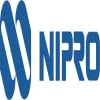Dive Brief:
- Merck & Co. will partner with Eisai Co. Ltd. to develop and market the Japanese pharma's cancer drug Lenvima, inking a sweeping collaboration deal aimed at expanding its edge in oncology.
- The agreement, potentially worth up to $5.76 billion, gives Merck rights to 50% of gross profits from sale of Lenvima, which is currently approved for thyroid cancer as well as second-line treatment of a certain type of kidney cancer.
- More importantly for Merck, however, is Lenvima's promise as a partner drug to its star immunotherapy Keytruda. The companies plan to launch a slate of new clinical studies to test the combination of the two drugs in 11 indications across six different cancer types.
Dive Insight:
Merck's willingness to put billions of dollars on the line for Lenvima (lenvatinib mesylate) is yet another sign of the shift toward combination treatment in immuno-oncology.
Impressive clinical data across a wide range of cancer types have lifted checkpoint inhibitors like Keytruda (pembrolizumab) into the ranks of the industry's top-selling drugs. Yet many patients still don't see a major benefit from immunotherapy, pushing Merck and others to test new drug pairings in hopes of boosting efficacy.
The deal with Eisai, in fact, is similar to another multi-billion dollar agreement struck with AstraZeneca plc last year for access to the British pharma's PARP inhibitor Lynparza (olaparib).
Both collaborations give Merck a share of profits from the respective drugs, while lining up broad clinical programs testing combinations with Keytruda. The aim is similar, too: finding a combination that more patients respond to could be the key to secure leadership of lucrative immunotherapy field.
Already, Merck's success in pairing Keytruda with the chemotherpy pemetrexed in non-small lung cancer has lifted sales of Keytruda considerably over the past year. Thanks to that clinical edge, Keytruda has now drawn even with Bristol-Myers Squibb Company's Opdivo on a revenue basis.

Under the deal with Eisai, the Japanese drugmaker books global sales of Lenvima but split gross profits equally with Merck. Lenvima earned about $220 million in the nine-month period ending Dec. 31, 2017, according to financial results disclosed by Eisai.
In exchange, Merck will pay $300 million upfront and as much as $650 million for unspecified option rights through 2020. Merck will also reimburse Eisai $450 million of expenses for research and development and pay up to $385 million in clinical and regulatory milestones.
The two companies will jointly initiate studies of Lenvima and Keytruda in six cancer types: endometrial, non-small cell lung, hepatocellular carcinoma, head and neck, bladder and melanoma.
Most of the deal's value, however, is back-ended toward contingent payments based on Lenvima hitting certain sales thresholds. All told, Eisai could receive up to $3.97 billion if all revenue milestones are reached.
"There is strong scientific evidence supporting synergistic effects of Keytruda when used in combination with Lenvima, and the companies have already received Breakthrough Therapy Designation from the U.S. FDA for the Keytruda/Lenvima combination in renal cell carcinoma," said Roger Perlmutter, head of Merck Research Laboratories in a March 8 statement.













